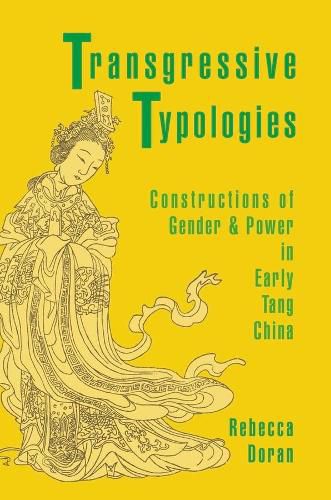Readings Newsletter
Become a Readings Member to make your shopping experience even easier.
Sign in or sign up for free!
You’re not far away from qualifying for FREE standard shipping within Australia
You’ve qualified for FREE standard shipping within Australia
The cart is loading…






The exceptionally powerful Chinese women leaders of the late seventh and early eighth centuries-including Wu Zhao, the Taiping and Anle princesses, Empress Wei, and Shangguan Wan'er-though quite prominent in the Chinese cultural tradition, remain elusive and often misunderstood or essentialized throughout history. Transgressive Typologies utilizes a new, multidisciplinary approach to understand how these figures’ historical identities are constructed in the mainstream secular literary-historical tradition and to analyze the points of view that inform these constructions.
Using close readings and rereadings of primary texts written in medieval China through later imperial times, this study elucidates narrative typologies and motifs associated with these women to explore how their power is rhetorically framed, gendered, and ultimately deemed transgressive. Rebecca Doran offers a new understanding of major female figures of the Tang era within their literary-historical contexts, and delves into critical questions about the relationship between Chinese historiography, reception-history, and the process of image-making and cultural construction.
$9.00 standard shipping within Australia
FREE standard shipping within Australia for orders over $100.00
Express & International shipping calculated at checkout
The exceptionally powerful Chinese women leaders of the late seventh and early eighth centuries-including Wu Zhao, the Taiping and Anle princesses, Empress Wei, and Shangguan Wan'er-though quite prominent in the Chinese cultural tradition, remain elusive and often misunderstood or essentialized throughout history. Transgressive Typologies utilizes a new, multidisciplinary approach to understand how these figures’ historical identities are constructed in the mainstream secular literary-historical tradition and to analyze the points of view that inform these constructions.
Using close readings and rereadings of primary texts written in medieval China through later imperial times, this study elucidates narrative typologies and motifs associated with these women to explore how their power is rhetorically framed, gendered, and ultimately deemed transgressive. Rebecca Doran offers a new understanding of major female figures of the Tang era within their literary-historical contexts, and delves into critical questions about the relationship between Chinese historiography, reception-history, and the process of image-making and cultural construction.